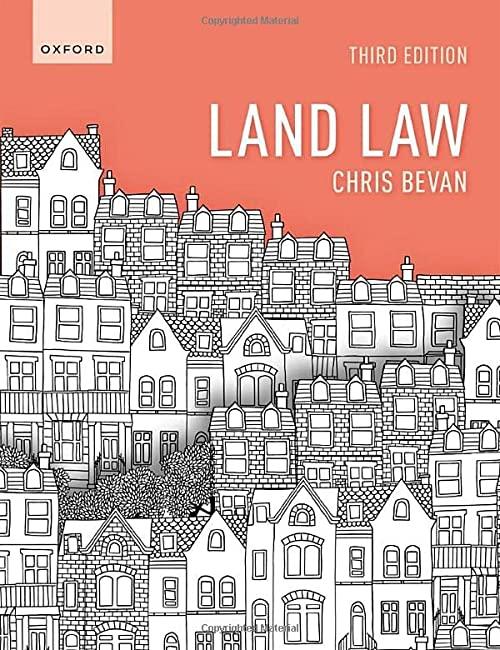Question
1. A case goes to trial where the evidence indicates, beyond a reasonable doubt, that the defendant stole $40,000 from a local bank. During the
1. A case goes to trial where the evidence indicates, beyond a reasonable doubt, that the defendant stole $40,000 from a local bank. During the trial, it was also revealed that the defendant suffered a great amount of financial hardship throughout their life and had an extremely large family to take care of. Disregarding the evidence, the jury takes pity on the defendant and comes to the verdict of not guilty. What has occurred?
A. Jury cancellation
B. Jury imperfection
C. Jury nullification
D. Jury invalidation
2. Which of the following are always pretrial requirements?
A. Standing
B. Proving actual injury
C. Personal jurisdiction
D. Providing a lawyer
3. Personal jurisdiction refers to
A. A courts jurisdiction over parties in litigation
B. A plaintiffs jurisdiction over the defendant in litigation
C. The judge's jurisdictions over the plaintiff and defendant in litigation
D. The attorneys jurisdiction over their clients in litigation
4. A city proposes a law that will establisha 25 cent tax on all plastic bags acquired from grocery stores. An upset citizen who does not want to incur these extra fees sues the city. Why can't this case be litigated? (Can have more than one answer)
A. It is moot
B. There is no personal jurisdiction
C. There is no standing
D. It is not yet ripe
What typically takes place after discovery is finished
A. The case proceeds to trial
B. The parties make a motion
C. A jury is selected for the trial
D. A deposition occurs
5. Which of the following does not represent a potential issue with a jury?
A. The jury may not accurately represent the diversity of society
B. The jury may be biased
C. Jurors may force a large personal burden serving on a jury
D. More citizens want to serve on juries in order to represent society than there are opening available
6. While the party bringing a legal claim is called the prosecutor or plaintiff, the alleged wrongdoer is always called the
A. Defendant
B. Guardian
C. Defender
D. Accused
7. Voir dire is
A. The process of selecting a petit jury
B. The process of choosing alternate jurors
C. The process of challenging potential jurors
D. The process of selecting a grand jury
8. Leading questions are permitted during (Multiple answers)
A. Opening statements
B. Direct examination
C. Cross-Examination
D. Closing arguments
9.An individual feels confident in their ability to litigate their own case without hiring attorney. Are they allowed to do so?
A. Yes, if they can pass a test proving a knowledge of law
B. Yes, if the judge overseeing the case allows it
C. Yes, if they have a law degree
D. No, they are required to hire an attorney
10. A potential juror is being questioned and admits that they have had several negative encounters with cops and are hesitant to trust them. Several key witnesses in the case at hand are cops. What are the parties likely to do in light of this realization?
A. Make a peremptory challenge against the juror
B. Make a for cause challenge against the juror
C. Allow the individual to serve on the jury for the case
D. Choose the individual as an alternate juror
11. Which of the following might a plaintiff seek in their prayer for relief?
A. Specific performance
B. Permanent injunction
C. Damages
D. Temporary injunction
Step by Step Solution
There are 3 Steps involved in it
Step: 1

Get Instant Access to Expert-Tailored Solutions
See step-by-step solutions with expert insights and AI powered tools for academic success
Step: 2

Step: 3

Ace Your Homework with AI
Get the answers you need in no time with our AI-driven, step-by-step assistance
Get Started


